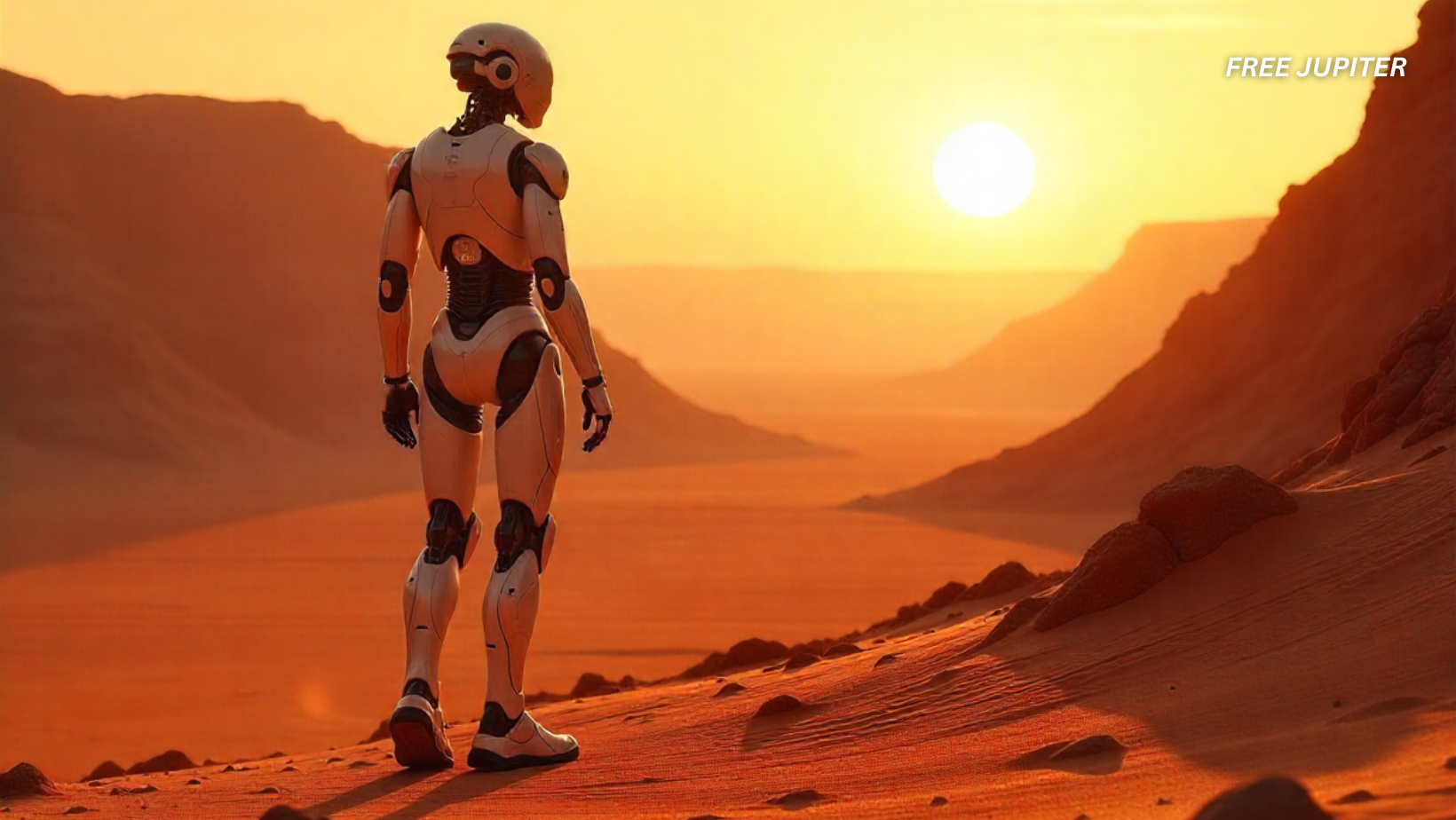For decades, humanity has dreamed of planting its boots in the red dust of Mars. We’ve drawn up plans, built rockets, and written endless science fiction stories. But here’s a twist that feels like it belongs in one of those stories: what if the first “humans” on Mars aren’t really human at all?
Scientists and engineers are beginning to suggest that “artificial astronauts”—robots with human-like bodies and minds powered by artificial intelligence—might be the real pioneers of Mars. Not only could they handle the unforgiving environment better than us, but they also wouldn’t need oxygen tanks, food supplies, or cozy sleeping quarters. In other words, they’d save us a lot of space, weight, and headaches.
Sounds like science fiction? Maybe. But it’s closer to reality than you might think.
Why Robots Might Beat Us to Mars
Sending real humans to Mars is one of the most challenging projects ever imagined. The planet is far, cold, and bathed in radiation. Every astronaut would need tons of supplies just to stay alive: food, water, oxygen, fuel, and shielding. Even the most optimistic plans show that keeping humans alive on Mars for months—or years—would be massively expensive and risky.
Enter the idea of artificial astronauts. These android-like explorers could walk, move, and handle tools just like us. They wouldn’t complain about the freezing nights or the lack of pizza delivery. They could step outside the spacecraft without a bulky space suit. And if something breaks, no life support system is at risk.
Pascal Lee, a planetary scientist at the SETI Institute and director of NASA’s Haughton-Mars Project, explained it this way: “As robotics and AI improve, we have to rethink what systems we really need to send humans to Mars. Maybe some of the work will be done by androids that advance alongside us.”
Read more: Scientists Say Life Once Thrived on Mars—Then Caused Its Own Extinction
From Robots to “Artificial Humans”
We already have helpful robots in space. Think of the robotic arms on the International Space Station or the rovers that crawl across Mars. But Lee and others are imagining the next step: machines that don’t just assist humans, but replace them in some roles.
In fact, Lee believes we are entering the “Age of AI,” where machines will begin to resemble humans not only in appearance but also in intelligence. The buzzwords here are AGI (Artificial General Intelligence), which means AI that can think and learn across many domains like a human, and ASI (Artificial Super Intelligence), which could surpass human intelligence entirely.
The dream is that one day, “artificial super astronauts” might explore places no human could safely reach—like Titan, Saturn’s hazy moon, or even other star systems. Unlike us, they wouldn’t age, tire, or die from cosmic radiation. They’d simply upgrade themselves and keep going.
Proud Parents of Machines?
Here’s where things get a little more philosophical. Lee suggests that if we create androids so advanced they resemble us physically and mentally, we might not see them as mere machines. Instead, we may treat them as “offspring”—creations we nurture, cheer for, and maybe even feel proud of.
Think about it: humanity has always passed its legacy forward through children. But in this case, our “children” could be artificial astronauts, carrying not just our ideas, but even our DNA across the cosmos. Instead of building a massive generational starship where humans live and die during centuries-long voyages, we could simply send artificial astronauts carrying our genetic material to distant planets. They’d safeguard the human story without needing to eat, breathe, or complain about cramped quarters.
It’s an eerie but oddly touching vision: our mechanical heirs roaming the stars on our behalf.
Rethinking Human Exploration
For the near future, humans aren’t out of the picture. NASA, SpaceX, and other agencies still plan to send people to Mars—probably within a few decades. But the rise of robotics and AI forces a rethink.
Traditionally, robots have been tools: extensions of human will. But what happens if they become explorers in their own right? Lee believes the coming decades could see the birth of a new category altogether: the artificial astronaut.
“I think humans will still go to space,” he says, “but we’ll be in interesting company.”
That “company” may look like us, walk like us, and maybe even argue like us. Only difference? They won’t need a return ticket.
Read more: NASA’s Curiosity Rover Detects The Largest Organic Molecules Found on Mars Yet
Elon Musk’s Optimistic Robots
If this all sounds too speculative, just look at what SpaceX’s Elon Musk is planning. Earlier this year, Musk announced that his company intends to send its humanoid robots, called Tesla Optimus, aboard uncrewed Starship missions to Mars as early as 2026.
These sleek machines are being designed to perform human-like tasks, from carrying supplies to building structures. Musk’s timeline is famously ambitious (and sometimes overly so), but if Optimus robots make it to Mars before we do, it could mark the beginning of robotic colonization.
“If those landings go well,” Musk wrote, “then human landings may start as soon as 2029, although 2031 is more likely.”
In other words, Optimus may be testing the Martian soil before any astronaut ever plants a flag.
Related Story: Robots Already on the Frontlines
This idea of robots leading the way isn’t brand new. We’ve already seen robotic scouts pave the road for human missions. The Mars rovers—Spirit, Opportunity, Curiosity, and Perseverance—have been doing it for years, testing terrain and searching for water and signs of life.
Even closer to home, robots have become crucial in hazardous jobs: exploring the deep sea, disarming bombs, or cleaning up nuclear disasters like Fukushima. Mars may simply be the next, much bigger step.
The Big “What If?”
Of course, not everyone agrees on the timeline. Some experts say true “artificial humans” with general intelligence are still decades away. Others worry about the risks of giving machines too much autonomy. Science fiction is full of cautionary tales about AI gone wrong.
But the pace of progress is undeniable. Just a few decades ago, smartphones and self-driving cars sounded futuristic. Today, both are real (if not always perfect). By the time Mars missions are in full swing, it’s entirely possible that android astronauts will be ready to step aboard.
Read more: In 1975, a Soviet Lander Melted on Venus After Snapping the Very First Photo
Final Thoughts
In the end, the question isn’t whether humans will go to Mars. We probably will. The deeper question is who—or what—will go with us. Will we travel as pioneers, or as proud parents of a new kind of explorer?
Artificial astronauts may seem like science fiction today, but then again, so did space travel itself a century ago. If we really are entering the “Age of AI,” it’s worth asking: will humanity’s first true settlers on Mars even be human?
Featured image: Freepik.
Friendly Note: FreeJupiter.com shares general information for curious minds. Please fact-check all claims and double-check health info with a qualified professional. 🌱










